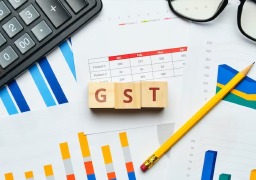# india
12 posts in `india` tag

Demystifying Form 26AS: Your One-Stop Guide for Smooth ITR Filing
This blog post unravels the mysteries of Form 26AS, a crucial document for a smooth ITR filing experience in India. It explains what Form 26AS is, the information it contains (TDS, TCS, tax payments, etc.), its importance in preventing errors and supporting claims, and the benefits of using it for tax planning and investment tracking. Additionally, the blog provides a guide on how to access your Form 26AS electronically.

Managing Medical Costs: An All-Inclusive Guide to Income Tax Act Section 80DDB
This blog post provides a comprehensive breakdown of Section 80DDB of the Income Tax Act, 1961. It explains what Section 80DDB is, what diseases are covered, who can claim the deduction, and how to claim it during tax filing. Additionally, the blog post highlights important points to remember, such as deduction limits, reimbursement impact, and required documentation.

Understanding Sections 234A and 234B of the Income Tax Act, 1961
This blog provides a comprehensive overview of Sections 234A and 234B of the Income Tax Act, 1961. It explains the interest levied for defaults in filing income tax returns and advance tax payments, their implications, and key differences. The blog also offers practical tips for taxpayers to ensure compliance and avoid penalties.

Understanding the Difference Between Form 3CD and Form 49B
A thorough comparison of Forms 3CD and 49B, which are crucial records in the Indian income tax system, can be found in this blog. It assists taxpayers in understanding the importance of each form and guarantees that tax rules are followed by outlining its main functions, essential characteristics, and filing requirements.

Sections 269SS and 269T of the Income Tax Act
The Income Tax Act has provisions called Sections 269SS and 269T that limit cash transactions for loans and deposits over Rs. 20,000 in an attempt to prevent tax evasion and encourage transparency. Such amounts cannot be accepted in cash according to Section 269SS, and cash repayment is limited according to Section 269T. Penalties for noncompliance may equal the cost of the transaction. This blog offers a thorough explanation of each of these areas, as well as helpful advice on how to comply.

Post Income Tax Return Submission Checklist
This blog outlines a comprehensive to-do list for taxpayers after filing their income tax returns. It covers key steps like verification, recordkeeping, refund tracking, tax analysis, responding to notices, and staying informed.

Disclosure Requirements for Foreign Assets and Bank Accounts
This comprehensive guide explains foreign bank account and asset disclosure requirements for Indian resident taxpayers in Assessment Year (AY) 2024-25. It covers what to disclose, deadlines, penalties, and how to report in Schedule FA.

New E-Filing Utilities for ITR-7 Form
This blog provides a comprehensive guide on the newly released ITR-7 e-filing utilities. It covers who can use the ITR-7 form, how to download the utilities, and additional information for filing electronically for the Assessment Year 2024-2025.

Don't Get Audited! A Guide to Avoiding False Claims in Your ITR Filing
Filing your Income Tax Return (ITR) can be stressful, but making false claims can be even worse. This blog explores the importance of accurate ITR filing, the risks of misinformation, and offers valuable tips to ensure a smooth and compliant tax filing experience.

Form 16C vs. Form 16D: A Comprehensive Guide
Understanding the nuances of different tax forms is essential for compliance and financial management. This blog dives into Form 16C and Form 16D, highlighting their specific purposes, applicable sections, issuers, and thresholds. Form 16C pertains to TDS on rent payments under Section 194-IB, while Form 16D relates to TDS on payments to contractors or professionals under Section 194M. The guide also provides step-by-step instructions on how to download these forms from the TRACES portal, ensuring you stay compliant with Indian tax regulations. Perfect for individuals and HUFs, this comprehensive guide by myITRonline clarifies everything you need to know about these crucial tax documents.

Important Tax Deadlines for July 2024
As the first quarter of the 2024-25 financial year ends, it's essential for taxpayers and businesses in India to be aware of important tax deadlines in July 2024. This blog provides a comprehensive guide on critical due dates set by the Income Tax Department and GST authorities. It covers deadlines for TDS deposits, TDS certificates, income tax returns, and GST filings, helping you stay compliant and avoid penalties.
Demystifying Form 15G and Form 15H: A Complete Guide
This blog provides a detailed overview of Form 15G and Form 15H, outlining their significance, eligibility criteria, and the process for submission. It aims to help taxpayers in India understand these forms and manage their TDS effectively.
